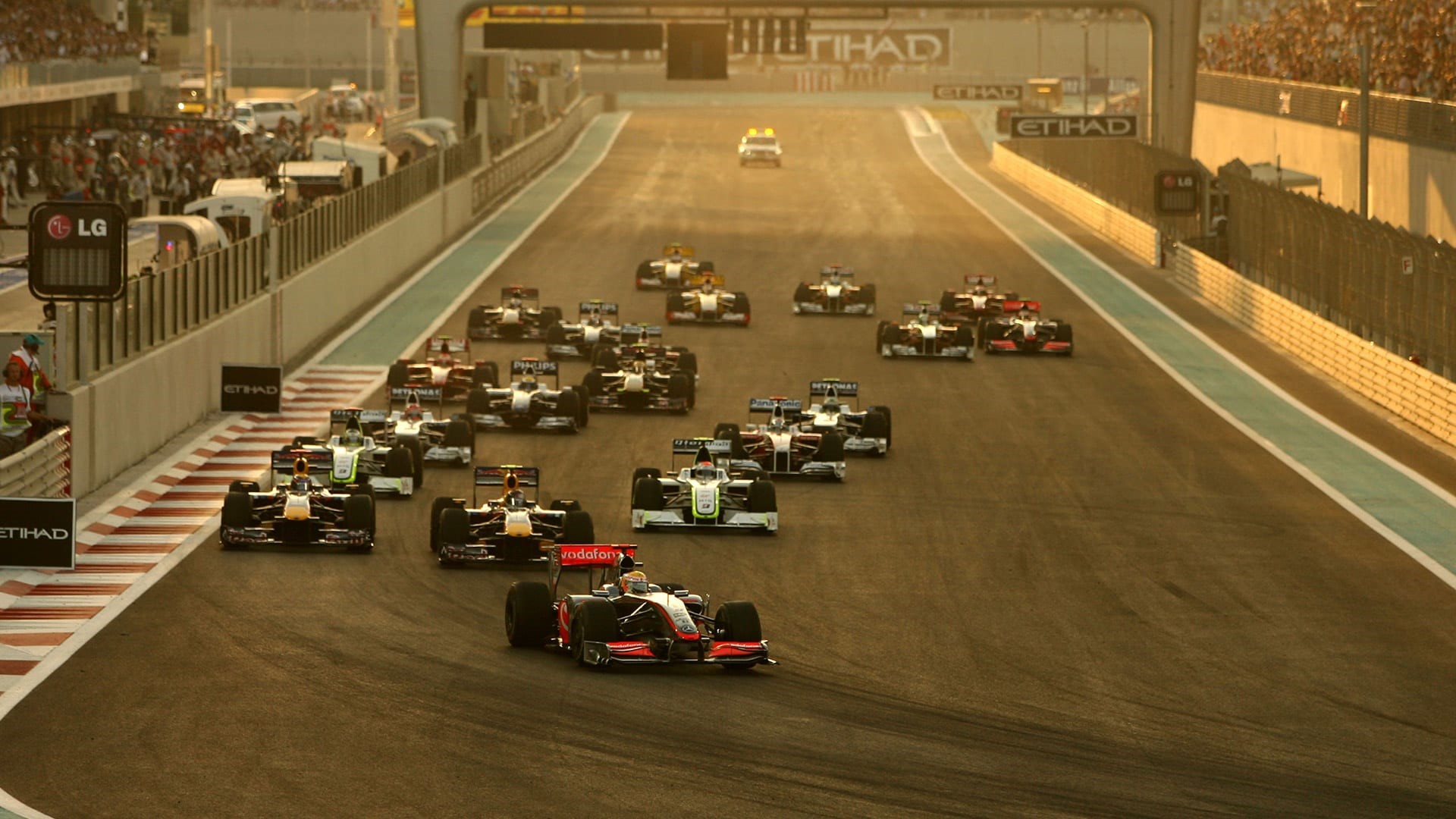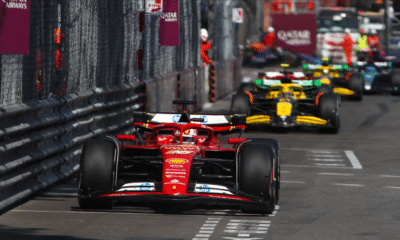
- The Abu Dhabi F1 Race will go down on November 26
- It is is not just another event in the Formula 1 calendar
- It is the highlight of the 2023 F1 season
The Abu Dhabi F1 Race, scheduled for November 26, is not just another event in the Formula 1 calendar. It represents the pinnacle of motorsport technology, driver skill, and intense competition. Here’s why the world will be watching this spectacular race.
The Final Showdown
The climax of the Formula 1 season in Abu Dhabi is more than just a race; it’s the culmination of a year-long journey of intense competition and relentless pursuit of excellence. As the final race, it often becomes the battleground where the championship is won or lost, making every lap critically important.
The pressure on drivers and teams is immense, as they must navigate not only the physical challenges of the race but also the psychological warfare that comes with high-stakes competition. This race has been witness to some of the most memorable moments in F1 history—dramatic overtakes, heartbreaking equipment failures, and triumphant victories that have defined careers. The anticipation that builds up to this race is unmatched, making it a must-watch for any motorsport fan.

Abu Dhabi F1 race. Photo/Motorsportsweek
The Yas Marina Circuit
This circuit is a jewel in the crown of Formula 1 tracks. Located on Yas Island in Abu Dhabi, it is renowned for its luxurious setting and state-of-the-art facilities. The track layout is a blend of long straights and tight corners, offering drivers a diverse range of challenges. One of the circuit’s most distinctive features is its day-to-night transition, as the race starts in the twilight and finishes under floodlights, adding a dramatic visual element to the race.
This change in conditions also affects track temperature, influencing tire performance and strategy. Additionally, the circuit’s waterfront setting provides a stunning backdrop, making it one of the most picturesque and photogenic tracks in the world.
Innovations in Racing Technology
Formula 1 is not just a sport; it’s a pinnacle of automotive engineering and innovation. The Abu Dhabi F1 race serves as a showcase for the latest advancements that teams have developed over the season. These innovations range from aerodynamic enhancements, which can significantly affect a car’s speed and handling, to hybrid power systems that push the efficiency and performance of the engines.
Teams also experiment with advanced materials to reduce weight and increase strength. Moreover, data analytics play a crucial role, with teams using sophisticated software to analyze every aspect of the car’s performance and make real-time strategy decisions. This relentless pursuit of innovation not only makes each race more exciting but also influences the automotive industry as a whole, as many of these technologies eventually trickle down to consumer vehicles.
Global Fan Base
The race attracts a diverse, global audience, both at the track and through various media channels. This global appeal is a testament to the sport’s ability to transcend cultural and geographical barriers, bringing people together in their shared passion for high-speed racing.
Cultural Extravaganza
The event extends beyond the track, encompassing a range of cultural activities that reflect the rich heritage of Abu Dhabi and the broader global culture of F1. From concerts featuring international artists to local cultural exhibits, the race weekend offers something for everyone.
Economic Impact
The influx of visitors for the race provides a significant boost to the local economy. Hotels, restaurants, and other businesses benefit from the increased activity, making the race an important event not just for motorsport enthusiasts but also for the local community and businesses.
Environmental Initiatives: In recent years, Formula 1 has been increasingly focused on sustainability and environmental responsibility. The Abu Dhabi race is an excellent opportunity to highlight these efforts. Initiatives include using sustainable materials in the construction and maintenance of cars and promoting the use of renewable energy sources in the racing infrastructure.
The sport is also moving towards more sustainable fuels and aims to achieve a net-zero carbon footprint by a certain target year. These initiatives are part of Formula 1’s broader strategy to not only be at the forefront of racing technology but also lead in environmental stewardship, showing that high-speed motorsport can coexist with a commitment to protecting the planet.

Abu Dhabi F1 race. Photo/ F1
The Spectacle of Speed and Strategy
The Abu Dhabi race is a perfect encapsulation of what makes Formula 1 a premier sporting event. The cars, engineered to the limits of modern technology, reach incredible speeds, pushing the boundaries of what is mechanically and humanly possible.
However, speed alone isn’t enough to win. The race is also a high-stakes game of strategy, where teams must make split-second decisions on pit stops, tire choices, and fuel management. This blend of raw speed and tactical acumen makes each race an unpredictable and thrilling spectacle, keeping fans on the edge of their seats from start to finish.
The Abu Dhabi F1 Race is more than just a sporting event; it’s a celebration of human achievement, technological innovation, and global unity. Its impact goes far beyond the track, influencing technology, culture, and business. The race on November 26 promises to be a thrilling conclusion to the F1 season, encapsulating all the excitement and drama that Formula 1 has to offer.
A journalism professional with hands-on experience in radio and digital content editing and publishing. A team player who achieves work goals through teamwork and collaboration. Willing to learn and take calculated risks to get work done.













You must be logged in to post a comment Login